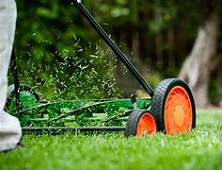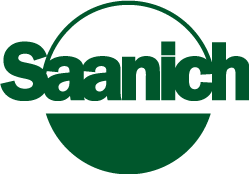Did you know every time you mow the lawn and put the clippings in your green organics cart or bring them to the yard and garden drop off, you’re throwing away a valuable fertilizer?
By mulching those clippings, you keep vital nutrients in the lawn.
Not only that, but it can also save you a huge amount of time and what can amount to significant savings in transportation costs helping to keep our garbage utility rates low.
What is mulching and how can it improve my lawn?
- Mulch is grass feed

- Mulching promotes soil creation
- Mulching helps retain moisture
Mulching is a method of cutting your lawn without collecting the grass clippings. What happens to the grass clippings? They are cut into tiny pieces by the mower’s specially designed blade and with the assistance of a mulching plug returned back to the lawn.As they are so small, they fall towards the soil and quickly decompose. This is a highly beneficial process for your lawn as it releases nitrogen and other nutrients into the soil benefiting the root system, acting as a natural fertilizer. Mulching promotes healthier, stronger and thicker grass while reducing weeds, moss and bare patches which reduces, if not eliminates, the need to use synthetic fertilizers.
The benefits don’t stop there. Mulching also provides moisture to your lawn that is highly appreciated especially during the summer. Mulch helps to prevent the grass from drying which means that you’ll need less water to keep it healthy. Especially helpful during our seasonal watering restrictions.
Environmentally Friendly
Let’s focus for a moment on the benefits of mulching for the environment and our carbon footprint:
- By mulching your grass instead of putting the clippings in your organics cart or bringing to the yard and garden drop off, you’re eliminating the greenhouse gasses involved in transporting to a composting facility.
- Mulching feeds your lawn significantly reducing the need to use fertilizers.
For more information on mulching and backyard composting visit the compost education center compost.bc.ca.

